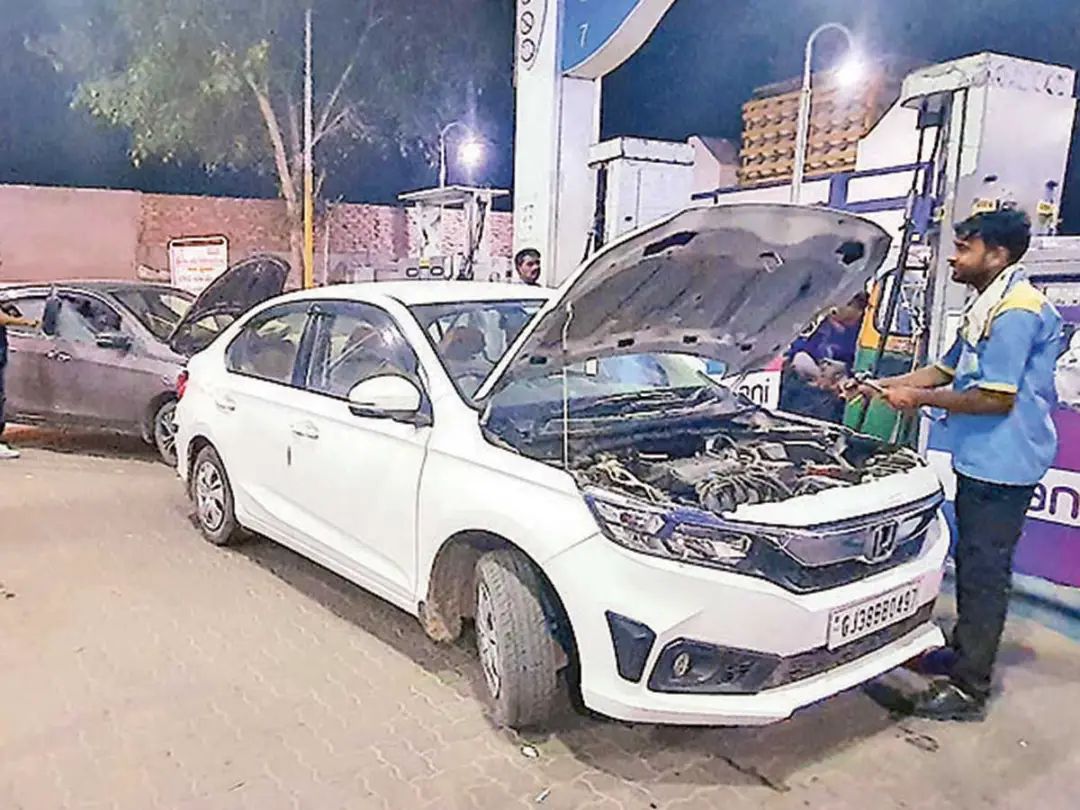The middle class has to find alternative ways to maintain their budget because fuel prices have increased for the 5th straight day.
The change, however, had already begun if the shift from petrol cars to CNG vehicles in the past six months is any indication.
Petrol prices breached the Rs 100 mark on October 1 in Ahmedabad and in the past one month it has crossed Rs 105 per litre. A regular sedan will run on an average 15 km on one litre of petrol, while CNG costs Rs 63 per kg and a car on gas runs an average of 25 km.
According to Ahmedabad Regional Transport Office (RTO) figures, the total number of persons who converted their petrol vehicles to CNG or bought new CNG cars in October stood at 940, up from 787 in September, a rise of over 15%. If we consider the increase since May this year till now, there has been almost a four-fold increase in the number of CNG vehicles. From 277 converted or new CNG cars in May, 603 more CNG vehicles were added in June, 771 in July and 800 in August. Aftermarket fitments/ conversions have been stopped in BS6 vehicles and only company fitted CNG vehicles are allowed now. However, conversions from petrol to CNG for BS4 vehicles have been allowed. With CNG kits available in the market 40-45 per cent cheaper than factory-fitted ones, they are more popular, but the vehicle loses its warranty once it is converted.
“The number of vehicles opting for CNG have definitely increased this October. Even aftermarket CNG vehicles have to be registered and the numbers suggest that they have increased,” said Assistant RTO Vinita Yadav. Prachir Agrawal, a dealer of Maruti Nexa cars said, “Most of the bookings we get are for CNG vehicles now since the price hike in petrol. People are even prepared to wait for six months for delivery.”
Since only company-fitted CNGs are now allowed in BS6 vehicles, it has given a boost to sales of factory-fitted CNG vehicles, he added.
According to Pranav Nanda of Concept Hyundai, “We have CNG in three models – Santro, Aura and Nios and Accent in the taxi segment. The demand for CNG is very high but the chip problem has dampened the sales. There is a 5-6 months’ waiting period for all vehicles. While the demand for CNG has increased since petrol prices rose, it all depends on how expensive CNG gets in the near future.” The long queue for refuelling at CNG pumps is a deterrent and only people who travel more than 70 km daily find it is good to have a CNG vehicle, Nanda added.



